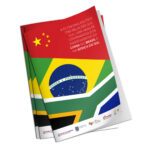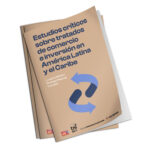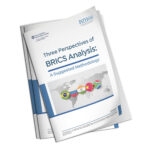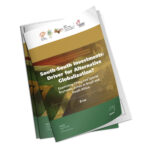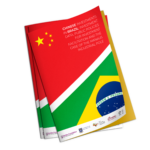The political economy of South-South relations: a comparative analysis of China’s investments in Brazil and South Africa
The Political Economy of South-South Relations
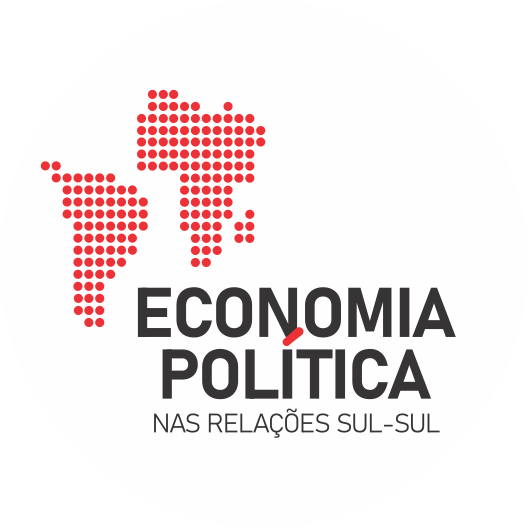
The purpose of the research program is to analyze trade and credit flows between BRICS countries and those countries in Africa, Latin America and the Caribbean.We investigate the investment of BRICS into Africa and Latin America and the Caribbean in terms of volume, sector and company. We analyze the public policies in order to facilitate, promote, and protect the foreign investment of BRICS, in particular the investment and trade treaties. Finally, we look to identify and discuss the social and environmental dynamics that occur in our territories where the projects of multinational corporations of BRICS are implemented. We aim to collect empirical elements to discuss the main characteristics of South-South investments, in order to contribute towards the broader understanding of the new configurations of global capitalism and the role of China, and to the development of public policies aimed at sustainable and inclusive economic development.
Comparative Analysis of Chinese Investments in Brazil and South Africa
The project aims to provide a comparative analysis of Chinese investments in two of the other BRICS countries: Brazil and South Africa. We will map Chinese foreign direct investment flows, observing the volumes, projects, main sectors and operating companies in the two countries. It will map the main public and private institutions (local governments, banks, business associations) that facilitate the interfaces between the investors and the receiving states. Public policies for promoting, facilitating, and protecting investments will be analyzed, such as national programas, legislation, investment agreements, as well as credit policies. Finally, we will identify relevant projects in Brazil and South Africa to analyze the local dynamics generated by Chinese investments, their impacts on the local communities, workforce and the environment. In this sense, we analyze and compare Chinese investments in two special economic zones: The Manaus Free Trade Zone, in the Amazon region, Brazil, and the Muzina-Makhado Special Economic Zone, in Limpopo, South Africa. The project has a partnership with professor Lisa Thompson (University of the Western Cape) in South Africa, and a collaboration with professors Cleiton Brito (Universidade Federal do Amazonas) and Maria Elena Rodriguez (IRI/PUC-Rio). The research is the subject of the grant, ‘Young Scientist of Our State FAPERJ’ and funded by the Karibu Foundation (Norway).
Coordination: Ana Garcia
Researchers: Lisa Thompson, Maria Elena Rodriguez, Cleiton Brito
Assistant Researchers: Candido Grinsztejn, Daniel Lannes, Victor Fernandes e Felipe Queiroz
Download the presentations:
Download the project:
Investment Protection Agreements of BRICS in Latin America and the Caribbean
The project results from the research grant known as the Latin American Council of Social Sciences (CLACSO) to the BRICS Policy Center, in partnership with REBRIP, in order to investigate the impacts of trade and investment treaties in Latin America and the Caribbean. The work is dedicated to analyzing the insertion of BRICS countries in the international investment system and to examine the models of bilateral investment treaties utilized by the countries in Latin America and the Caribbean. Showing the different phases and reform processes gone through by China, Brasil, South Africa, India, and Russia in the international investment system. We will present the characteristics of the models of bilateral investment treaties (BIL) and the free trade treaties (FTT) of each of the BRICS with Latin American countries. We carried out a quantitative survey in order to identify the number of agreements each BRICS country has with countries in the region. We then moved on to a qualitative analysis of the text of the agreements. We also carried out a survey on the role of the BRICS countries on the international arbitration system, presenting the results in the table. We checked how many cases involved China, Brazil, South Africa, India and Russia as respondent states, or as countries of origin of the complaining companies.
Coordination: Maria Elena Rodríguez e Ana Garcia
Assistants: Candido Grinsztejn, Phelipe Machado, Daniel Lannes e André Rezende
Download the presentation:
Download the project:
The Relations between China and Latin America: Investments, Environment, and Agriculture
The project brings together researchers from the BRICS Policy Center, PUC-Rio, and the Graduate Program of Development, Agriculture, and Society (CPDA), of the Universidade Federal Rural do Rio de Janeiro, with an aim to consolidate existing research and complement mutual efforts to create a thematic reference center, based in Rio de Janeiro, about the relations between China and Latin America. Due to the centrality of China in global agricultural and mineral commodity chains, as well as the technological innovations to the energy transition for climate change mitigation, the relations of the Asian country with Latin America becomes increasingly more important. The research focuses on three main realms: the investment and credit flows of China to the Latin American region, in particular, to Brazil, analyzing the public policies that facilitate Chinese investment in the region; evaluation of the tendencies and implications of the trade and investment relations between Brazil and China, with case studies of Chinese companies’ performance in different Brazilian agri-business chains; and finally, identification of the possible economic, social, and environmental impacts of these trade and investment relations, in order to point out the strategic guidelines for cooperation with China that can inform public policies oriented towards the construction of a fair and sustainable development project, and the sovereign insertion internationally of Latin America and Brazil. The project is covered by the FAPERJ Thematic Projects Call.
Coordination:: Ana Garcia
Researchers:: John Wilkinson, Fabiano Escher e Maria Elena Rodriguez
Publicações
Challenges of BRICS and the Brazilian Presidency of the Bloc
Sixteen years after the formation of BRICS, this article proposes a historical analysis of the bloc’s establishment and consolidation, with a focus on the main challenges faced by the current...
State of Power 2025 – Geopolitics of Capitalism
The formation of BRICS is one of the main features of globalization in the 21st century. Originally formed by Brazil, Russia, India, China and South Africa, the group has become...
The Political Economy of South-South Relations: A Comparative Analysis of...
The BRICS – Brazil, Russia, India, China and South Africa – began to emerge as a political and economic platform in the late 2000s. The rise of the BRICS reinforced...
Critical Studies on Trade and Investment Treaties in Latin America...
Trade and investment treaties have been signed en masse on a global scale over the past three decades, marking a particular form of economic insertion of Latin American and Caribbean...
Three Perspectives of BRICS Analysis: A Suggested Methodology
The BRICS economies have played a significant role in globalization, both as recipients of foreign direct investment (FDI) and as foreign investors, as home-grown private and state enterprises have expanded...
It’s time to improve the quality of Brazil-China cooperation
The 50th anniversary of the establishment of diplomatic relations between China and Brazil offers an opportunity to take stock of the scope, achievements and limitations of these relations.
Brazil and China 50 years: Trajectory and Perspectives
On August 15, 2024, we celebrate the fiftieth anniversary of the establishment of diplomatic relations between the Federative Republic of Brazil and the People’s Republic of China. This is an...
South-South Investments: Driver for Alternative Globalization?
The formation of BRICS marks a significant aspect of 21st-century globalization. This has spurred optimism in the Global South about offering an alternative to Western dominance. China has aimed to...
Chinese Investments In Brazil: Investment Data, Public Policies For Investment...
The focus of this report is Chinese investments in Brazil. We begin by presenting data on the evolution and main characteristics of Chinese investments from 2010 to the present day,...




